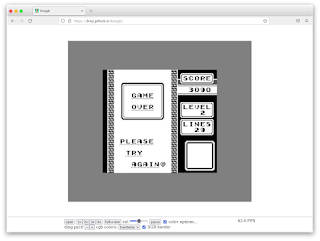POWER8 was the first OpenPOWER processor and the one planned for the original Raptor Talos (that never got released to the public), but also appeared in several third-party systems, largely by Tyan. It offered fully open firmware and while it exclusively required Centaur memory buffer chips, these could be on riser cards, interposers or even on the logic board to allow attaching regular ECC DIMMs. It introduced ISA 2.07, which among other features expanded on the vector-scalar extension instructions first introduced in POWER7 (called VSX-2 in 2.07).
POWER8 systems are certainly more widely distributed than previous generations which since about POWER5 were almost exclusively IBM, and they were also the first Power ISA CPU with a fully-functioning little-endian mode (the POWER7 implementation had gaps), which caused it to rapidly become the baseline for most distributions supporting Power. But POWER9 is even more widely distributed, not least of which because of "low end" systems like this Talos II and the Blackbird, uses 25% less power but is 50% faster than a chip that was already two to three times faster than POWER7, and has even more advantages in terms of instruction set; ISA 3.0 expands VSX further (VSX-3) and also adds a number of other useful instructions. The current incarnation of our Firefox JIT, for example, leverages new POWER9-specific instructions for remainders, accessing the program counter and 64-bit byte swapping. All this, and it's still a fully open architecture with fully open firmware.
On the other hand, Power10 is presently a step backwards. Putting its otiose binary blobs aside for the moment, there are only a few Power10 SKUs in its current infancy, none of them are workstations, and none of them don't say IBM. No Power10 hardware takes direct attach RAM, not even like the POWER8 did. No ODM has a channel for obtaining the actual CPUs. If there's a Rainier reference design to work from, no one seems to be talking about it. It's almost back to the bad old days when IBM wouldn't sell me a POWER7 and nobody else made one (my long-running POWER6 was a reseller purchase).
If Ubuntu's move is the first of many to decommission POWER8 support, that's still over six years as a first-tier citizen (almost five as second fiddle to POWER9), and no one else so far has talked about a similar move. (Even if RHEL 9 goes POWER9+ only, RHEL 8 would presumably support your POWER8 until 2029.) It's sad to see it happen but POWER9, besides being easier to get, is an improvement in virtually every way and in ways Power10 right now is not. Besides the fact IBM's still selling POWER9 machines, the chip's time on top and its wider distribution are good signs for the first Power CPU in years to be in purpose-built desktops and more third-party servers. Nearly five years atop the heap buys you a lot of market penetrance especially with a questionable successor. While all good things must come to an end, POWER8's death is hardly imminent, and POWER9's is nowhere yet in sight.


